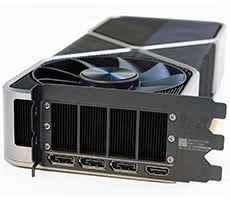NVIDIA nForce 680i SLI Preview
Features and Benefits: DualNet & FirstPacket

The new nForce 680i SLI chipset has many features in common with the nForce 590 SLI that came before it, namely DualNet, FirstPacket, LinkBoost, EPP, MediaShield and nTune support.
|
|
|
As its name implies, DualNet is a reference to the dual independent Gigabit Ethernet MACs incorporated into the nForce 680i chipset. DualNet is more than a pair of MACs though. Both GigE MACs feature TCP/IP acceleration which offloads many functions from the host processor to lower CPU utilization, and both can do RSS, or Receive Side Scaling.
 DualNet 2X Bandwidth: Teaming |
 DualNet Failover |
Having dual independent MACs gives NVIDIA the ability to link a pair of GigE LAN connections together to enable Teaming with Failover protection. With Teaming, both GigE connections are essentially linked, and appear as a single 2Gb connection for double the theoretical max bandwidth to the network. And with Failover protection, should one of the GigE connections be compromised in any way, the other automatically takes over and keeps the system connected to the network.
|
|
|
Another new feature integrated into NVIDIA's DualNet engine is dubbed FirstPacket. FirstPacket is a technology that lets user's prioritize data packets from specified applications, like games for example.

NVIDIA First Packet
When multiple applications are in contention for network resources a typical configuration will arbitrarily balance the load between applications. But with FirstPacket, a user can specify a particular application, and when that application is sending data packets, the FirstPacket Prioritizer sends those packets to a dedicated queue, and in turn they are prioritized ahead of other applications. FirstPacket will be useful for gamers who want to keep their pings as low as possible while running other applications that also use network resources (FTP, IM Clients, etc.), or for those who use VoIP applications like Skype on regular basis.






